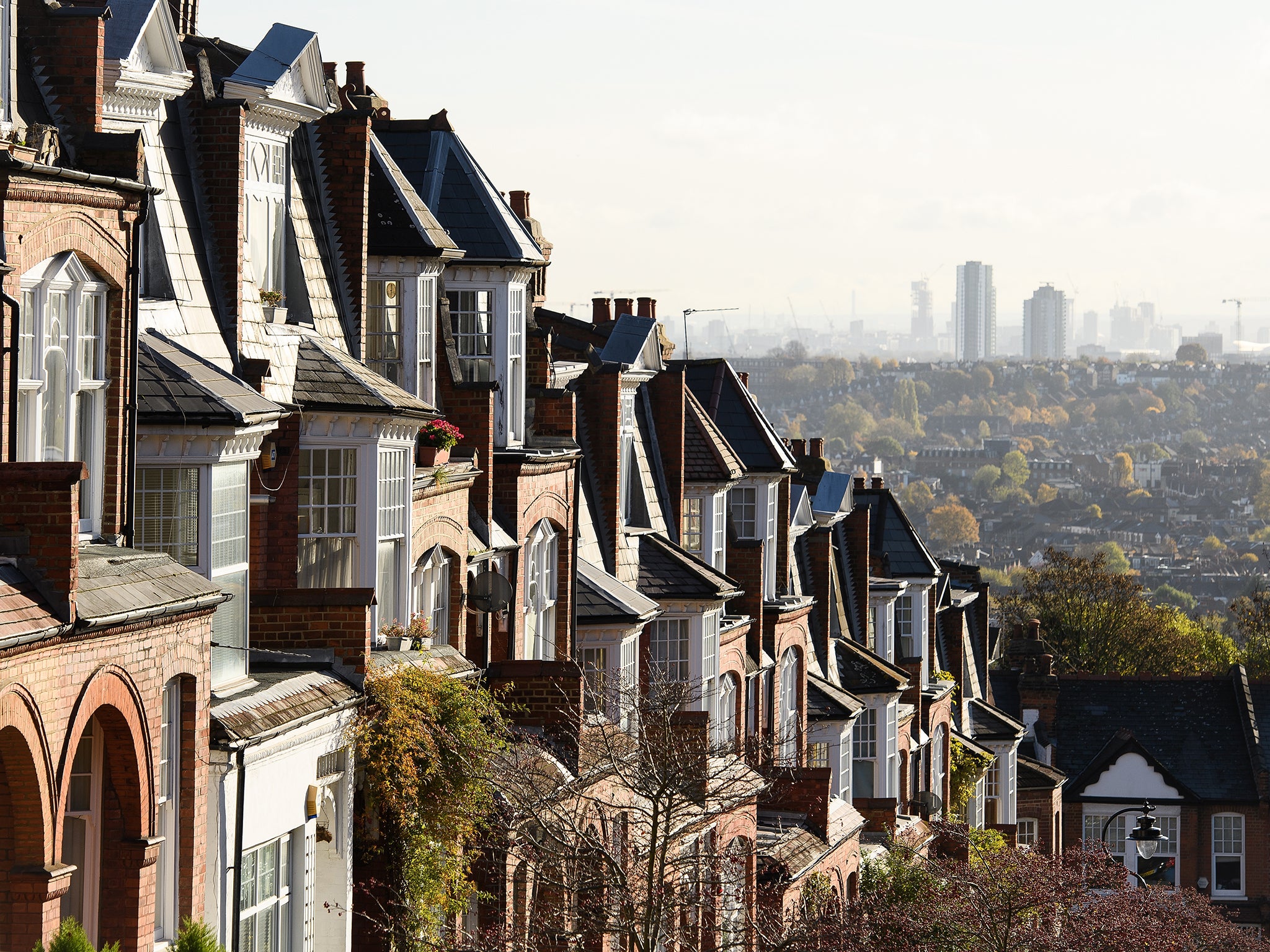Homeowners hit by double blow as London prices fall and interest rates look set to rise
Prices across Britain rose at their slowest pace in more than four years

Support truly
independent journalism
Our mission is to deliver unbiased, fact-based reporting that holds power to account and exposes the truth.
Whether $5 or $50, every contribution counts.
Support us to deliver journalism without an agenda.

Louise Thomas
Editor
Homeowners are facing a twin blow of increased mortgage payments and a slowing housing market, with London prices falling for the first time in eight years.
Across the UK the average price of a home increased at its slowest slowest pace in more than four years in September, Nationwide said on Friday.
The news came shortly after Bank of England governor Mark Carney gave his clearest signal yet that the central bank's Monetary Policy Committee would raise its benchmark interest rate from 0.25 per cent.
"What we have said, that if the economy continues on the track that it's been on, and all indications are that it is, in the relatively near term we can expect that interest rates would increase somewhat," he told BBC Radio 4's Today Programme, on Friday.
A rate hike would mean more expensive home loans for homeowners who have grown used to ultra-low interest rates.
The MPC meets on 2 November to make its decision and a rate rise would be the first in more than a decade. Any increase is expected to be small but would place additional strain on households already stretched amid higher inflation and weak wage growth.
A 0.25 per cent rise would mean a person with a £200,000 mortgage on the average UK variable rate of 4.6 per cent would pay an extra £28.72 per month.
An increase of 1 per cent would add an extra £117.10 to payments, though this scenario is not expected to become a reality in the short term.
Higher payments could prove painful for homeowners, especially as the housing market begins to stutter.
London house prices fell 0.6 per cent in the year to September, Nationwide said - the first annual drop since the aftermath of the financial crisis in 2009.
It was the first time since 2005 that London was the worst performing region in the country.
The East Midlands topped the list with average values jumping 5.1 per cent in the year to September.
Across the UK as a whole, house prices rose 2.0 per cent year-on-year, marginally below the 2.1 per cent registered in August and the weakest increase since June 2013.
In month-on-month terms, house prices rose by 0.2 per cent in September
UK house price growth has collapsed since last June’s Brexit vote when values were rising at an annual rate of more than 5 per cent.
Record-low interest rates had supported the market, Nationwide said. However, that effect is now being cancelled out as household incomes come under increased pressure.
Though a hike would hurt those on variable mortgages, Nationwide said a small rise is likely to have minimal impact on the housing market as a whole.
Nationwide's chief economist Robert Gardner said: “This is partly because the proportion of borrowers directly impacted will be smaller than in the past. In recent years the vast majority of new mortgages have been extended on fixed interest rates.
Business news: In pictures
Show all 13"London has seen a particularly marked slowdown, with prices falling in annual terms for the first time in eight years, albeit by a modest 0.6 per cent.
"Consequently, London was the weakest-performing region for the first time since 2005."
Vicky Fowler, a partner from law firm Gowling WLG said the figures demonstrate that the figures could represent a "milestone" for the property market, particularly in the capital.
She said falling prices are not, as some analysts have suggested, the result of an exodus of foreign buyers who now see UK property as a less attractive investment, but instead are a symptom of wider economic malaise.
"A recent Mayoral report highlighted that overseas investors count for just one in ten of the central London properties in current ownership," she said.
"Recent figures highlighting a widespread decrease in wage levels throughout the UK could, therefore, be having more of an effect on the capital's property market than originally thought."
Subscribe to Independent Premium to bookmark this article
Want to bookmark your favourite articles and stories to read or reference later? Start your Independent Premium subscription today.
Join our commenting forum
Join thought-provoking conversations, follow other Independent readers and see their replies
Comments